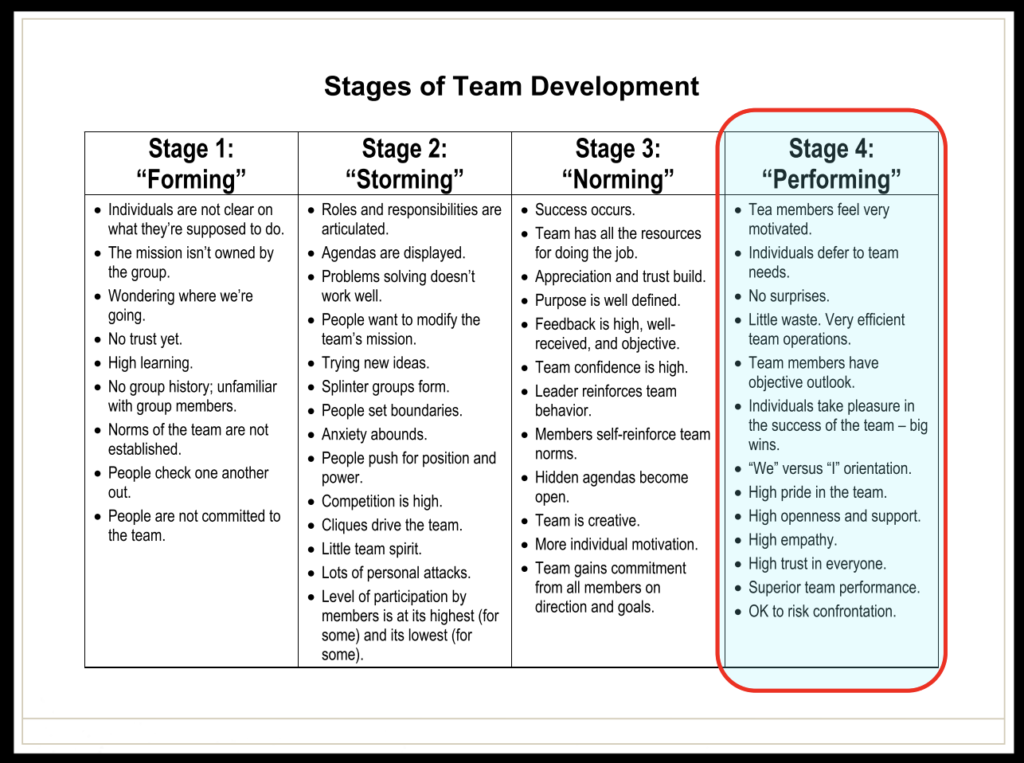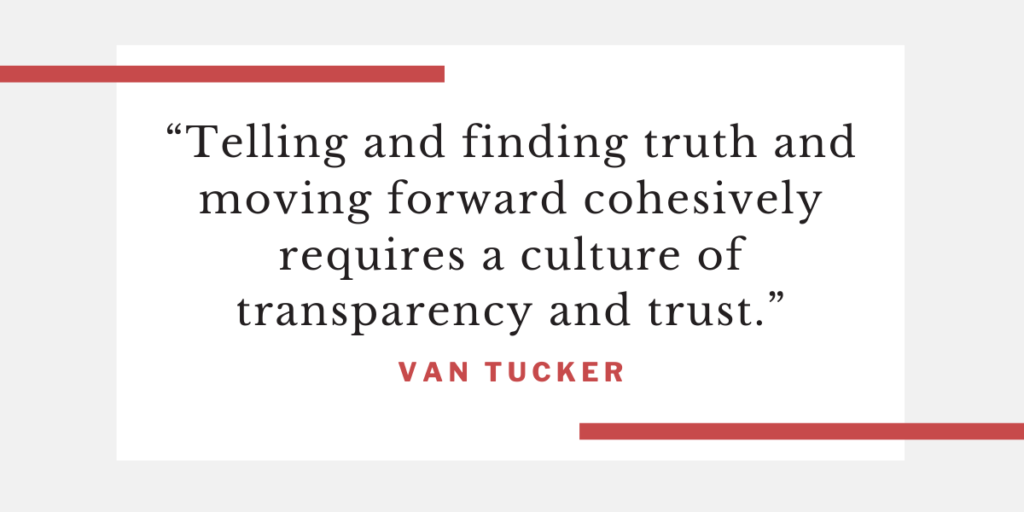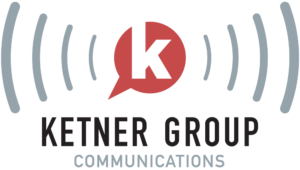On the last Friday of May, we hosted the first edition of our ongoing webinar series KG Connects, “How to Encourage Better Choices in Your Team.” Van Tucker, COO of LaunchTN, joined us to discuss how business cultures founded on trust and radical candor are far better at achieving business goals.
She provided guidance on how to establish a culture that provides an optimal working environment for all team members – whether in the office or working remotely – and launches business success into hyperdrive.

As COO, Van’s job is to remove obstacles preventing her team from doing their jobs best.
COVID-19 made this even tougher. The whole organization had to change course to help state government and startups respond appropriately. Like many, they also onboarded new employees while working from home.

Even with the pandemic disruption, their organization is thriving. Team members are even happier and more productive.
Why?
Before sh*t hit the fan, the whole team defined and fully bought into a cohesive and transparent company culture.
Tuckman’s Team Development Model
Developing a workplace culture that drives results isn’t easy. It requires understanding what an optimal culture looks like and what to do to do to get there.
This is where Tuckman’s Team Development Model becomes highly useful. All organizations go through it, and while some only “Form” and fail, others quickly become “Performers”. For most, it requires careful attention and commitment to master.

In order to move up the maturity ladder, organizations need to actively cultivate their culture and engage the full organization.
- Start with team surveys to establish baseline – find perceptions of salary, benefits, and most important cultural and organizational attributes and deficiencies. These could include low mutual trust, a sense of disempowerment among junior teams, or communications and transparency gaps.
- Use the Meyers-Briggs Type Indicator (MBTI) and/or Strength Finder tests to better understand your own personality and communication preferences, and those of others on your team.
- Use the combined findings to ensure your organization leverages each team member’s strengths in the right positions to eliminate those barriers to productivity, job satisfaction and organizational success.
- Create a safe environment to address sensitive issues like trust, empowerment, and transparency.
Conflict Resolution
To do this, it’s critical to provide structure and opportunity for healthy disagreements to take place and for constructive conversation to take place. Host a weekly huddle and include time for a process check. Concerns can be raised on a scale of 1 to 10 when it becomes a pinch point for them.
When a team member surfaces a conflict, they take on ownership to understand the other person’s perspective and see it through to resolution. Team members who have fully bought into a Performing company culture will strive to work outside of their preferences to the benefit of the team.
Radical Candor
The only way to achieve this is to get good at having hard conversations. Telling and finding truth and moving forward cohesively requires a culture of transparency and trust. It creates an environment for people to be themselves and work together. Critically, it also enables everyone to openly and amicably resolves conflict, regardless of their personality.

This is what Kim Scott calls “radical candor”. To do it well requires clear guidelines to help facilitate it.
When and why to have a candid discussion
- When you observe a behavior or action that could have a potential negative impact on the wellbeing/culture and productivity of a teammate, the team, or the company
- If a colleague lacks self-awareness and you would like to help them be their best self
- To avoid feelings/situations ending up as gossip and hurting our culture.
How to have a candid discussion
The goal of a candid conversation is to understand each other, not to reach consensus. Disagreement is okay. It will foster healthy debate and help your company identify truth and deliver optimal outcomes. Importantly, you must also meet face to face. Humanizing the interaction will work wonders.
The intention is to share perspectives, not force actions upon others. Also, recipients should stay open and not take opinions personally. They should take the time to listen and thank the other person for sharing their thoughts even if they disagree
Both parties must:
- Be grateful to the other party for having the discussion
- Listen fully, with the intention to understand
- Be authentic and direct, don’t wear a mask or be evasive
- Be constructive and helpful
The initiating party, especially, must:
- Focus on the behavior, not the person.
- Share examples to back up any claims
- Accept the outcome. Set a goal of understanding each other, not forcing a consensus.
At the end of each candid discussion, rank yourself against these guidelines: How did you do? What can you improve next discussion?
Over time, this process creates an overwhelming sense of team spirit, connection and most importantly, trust. When each member of the team buys in and knows that everyone else is working in the best interest of the organization – not themselves – incredible things can, and will, happen.
Take your team from storming to performing
Check out the full webinar recording for all of Van’s best advice on turning your organization’s culture into its biggest asset.
Culture always eats strategy for breakfast. So, take control of it and reap the rewards.
About LaunchTN
Launch Tennessee is a public-private partnership, guided by a vision of making Tennessee the most startup-friendly state in the nation. Their mission is to empower a high-functioning network of resources focused on core priorities that support Tennessee’s entrepreneurial ecosystem.
Partnering with Entrepreneur Centers in seven regions of the state, LaunchTN creates collaboration among entrepreneurs, the private sector, capital sources, institutions, and government to offer entrepreneurs what they need to succeed and stay in Tennessee to build companies and create jobs.

